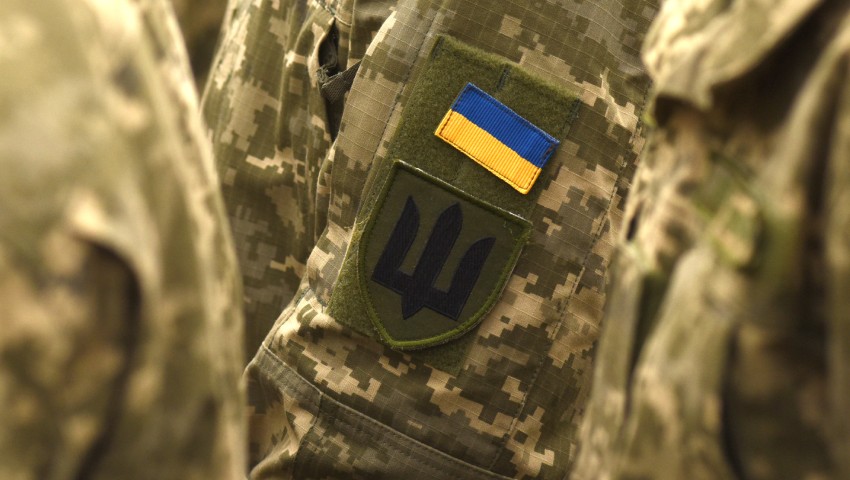For many, the thought of Ukraine recapturing Crimea is farfetched. However, recent analysis has demonstrated how a litany of Russian failures have opened up new pathways for the Ukrainian military to retake the peninsula.
To continue reading the rest of this article, please log in.
Create free account to get unlimited news articles and more!
While many analysts in the West see a Ukrainian assault on Crimea as flight of fancy, Kyiv never softened its rhetoric on the need reunify all Ukrainian territory lost since 2014.
Even in 2021, Ukraine’s Minister for Foreign Affairs Dmytro Kuleba took to Twitter to announce that the government had approved the strategy for deoccupation and reintegration of the Crimean Peninsula. Constituting part of a three-pillar approach to reunify the entirety of Ukraine.
We’ve approved the Strategy for Deoccupation & Reintegration of Crimea, a historic document needed since 2014. The signal is crystal clear: we don’t just call on the world to help us return Crimea, Ukraine makes own dedicated & systemic efforts under @ZelenskyyUa’s leadership 1/2
— Dmytro Kuleba (@DmytroKuleba) March 11, 2021
Although, much has changed since 2021. And a lot has also changed since the February invasion.
Estimates from the Center for Strategic and International Studies in late March predicted that Russia had already lost 25 per cent of its fighting force. Perhaps an inflated number, though a hasty withdrawal from the surrounding suburbs of Kyiv with fierce opposition from a distributed network of irregular warfare practitioners is likely proof that Russian manpower and technology was insufficient in overcoming their Ukrainian adversaries.
So, can Ukraine retake Crimea?
Foreign affairs and conflict analyst Brian Frydenborg in the Small Wars Journal last week outlined how the Ukrainian military is in a unique position to retake the Crimean Peninsula.
His reasons include: the deployment of Russian forces to the front line rather than reinforcing seized territory, an opportunity to threaten critical Russian supply lines and a growing arsenal of anti-ship weapons that are keeping the Russian navy at a distance.
First, suffering significant losses across the country, Frydenborg argues that a majority of Russian troops and hardware have been deployed to the frontlines, leaving few formations “to defend the rest of the territory” that Russia had already seized from Ukraine.
Frydenborg argues that this misallocation of troops - where they do not offer sufficient protection of supply lines and key population centres - was due to a misconception that Russia would be “conquerors, not defenders”.
The result of this is that Ukrainian military successes on the Kherson front would enable rapid territorial gains southwards by Ukrainian fighting forces, as few Russian units remained stationed behind the front.
Second, the Ukrainians have a unique opportunity to cut off a significant portion of the peninsula’s supply and trade with Russia.
Until the war, Russia’s hastily built Kerch Strait Bridge was the only avenue for Russia to trade or move troops between Russia and Crimea, necessitating the much discussed “land bridge”.
The analyst contends that a quick territorial gain following success at the Kherson front would disrupt the viability of this “land bridge” to provide supplies and troops to the Russian front lines. In tandem, the Ukrainian government should consider destroying the Kerch Strait bridge thus isolating the peninsula from potential Russian reinforcements.
Finally, Ukraine has a rapidly growing arsenal of anti-ship missiles due to the recent success of the domestically produced Neptune missile and from Western donations. Following the successful sinking of the Moskva, Frydenborg has argued that the Russian military has come to a sobering analysis that its naval assets are in sinking distance – and have thus pulled their ships further from shore and playing less of a role in hostilities.
Considering this, Frydenborg argues that is unlikely that the Russian Navy would be able to successfully undertake support and resupply missions in the event of a Ukrainian assault on the peninsula.
Your say
Considering Russia’s technical and military capabilities, do you believe that the Ukrainian military could undertake an assault on Crimea? Share your thoughts in the comments below.
Get involved with the discussion and let us know your thoughts on Australia’s future role and position in the Indo-Pacific region and what you would like to see from Australia's political leaders in terms of partisan and bipartisan agenda setting in the comments section below, or get in touch with

 Login
Login







